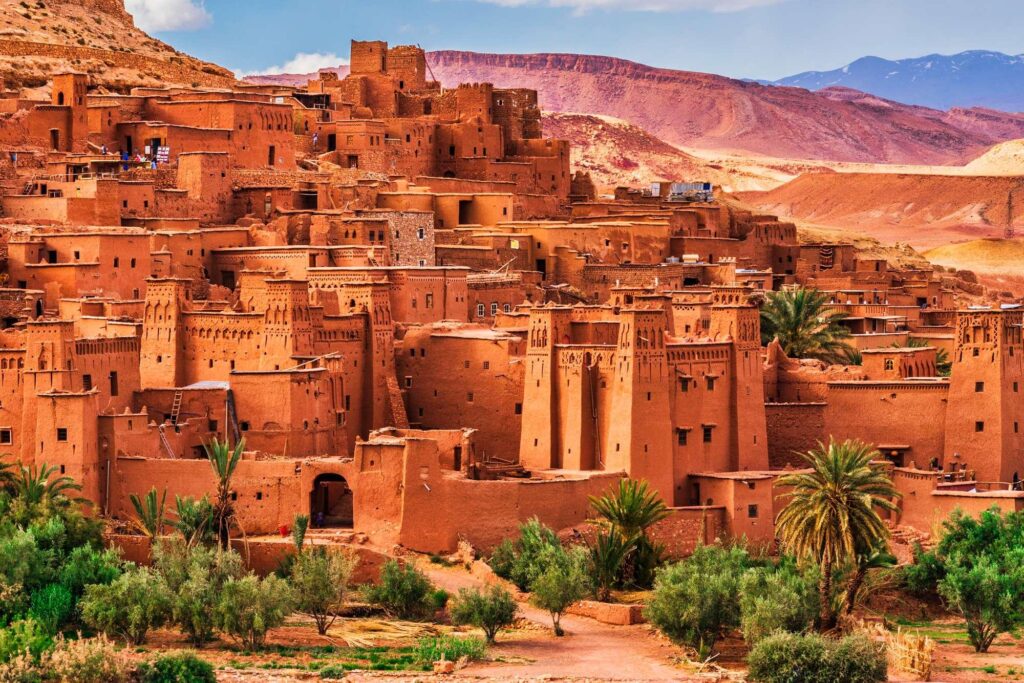Morocco and Ethiopia Establish Strategic Military Partnership to Enhance Regional Security
In a pivotal development aimed at reinforcing security cooperation across Africa, Morocco and Ethiopia have officially entered into a strategic military partnership, formalized through an agreement signed in Rabat. This collaboration emerges amid escalating geopolitical complexities within the continent, promising to deepen defense ties by facilitating joint training programs, intelligence exchange, and synchronized operational efforts. As African nations confront multifaceted security threats—from terrorism to regional conflicts—this alliance signals a shared dedication to fostering peace and stability throughout the region.
Key Elements of the Morocco-Ethiopia Defense Collaboration
The newly inked agreement outlines several core areas of cooperation designed to enhance both countries’ military effectiveness:
- Coordinated Training Exercises: Scheduled joint drills aimed at improving tactical coordination and combat readiness between Moroccan and Ethiopian forces.
- Enhanced Intelligence Cooperation: Systematic sharing of actionable intelligence focused on counterterrorism operations and combating transnational organized crime.
- Defense Technology Partnerships: Collaborative efforts in research, development, and transfer of advanced military technologies to modernize defense capabilities.
This partnership leverages Morocco’s strategic position bridging North Africa with Europe alongside Ethiopia’s extensive experience in peacekeeping missions across Africa. Together, they aspire to build a resilient security framework that could serve as an exemplar for continental defense alliances.
The Broader Impact on North African and Horn of Africa Security Dynamics
The alliance between these two influential African states represents a notable shift in regional power balances. By aligning with Ethiopia—a dominant force in the Horn of Africa—Morocco is poised to expand its influence beyond its traditional sphere while addressing pressing challenges such as extremist insurgencies and political instability. Analysts anticipate that this collaboration will facilitate:
- Synchronized Military Operations: Joint maneuvers enhancing rapid response capabilities against emerging threats.
- Tactical Intelligence Sharing Networks: Strengthened communication channels for real-time threat assessment across borders.
- Cohesive Training Programs: Cross-national skill development promoting interoperability among troops from diverse backgrounds.
This trend reflects an increasing inclination among African nations toward forming robust defense coalitions capable of navigating complex geopolitical landscapes. With ongoing conflicts affecting regions like the Sahel—where extremist groups remain active—and humanitarian crises persisting in parts of East Africa, this partnership could play a critical role in stabilizing volatile zones through coordinated counterinsurgency campaigns and support for civilian populations affected by conflict.
Tactical Recommendations for Maximizing Defense Synergies
To fully realize the potential benefits embedded within this military cooperation pact, it is essential that both countries implement targeted strategies focusing on operational efficiency:
- Diversified Joint Drills: Designing exercises that simulate various combat scenarios—including urban warfare, desert operations, and cyber-defense—to prepare forces comprehensively for evolving threats.
- Create Integrated Intelligence Platforms: Developing secure digital frameworks enabling seamless data exchange while safeguarding sensitive information from cyber intrusions or leaks.
- Pursue Technological Modernization Initiatives: Investing jointly in emerging domains such as drone surveillance systems, electronic warfare tools, and cybersecurity defenses tailored specifically for regional challenges.
An emphasis on logistics coordination is equally vital; establishing unified supply chains will ensure rapid mobilization during crises while optimizing resource allocation under budgetary constraints common among developing militaries. Additionally, a focus on personnel exchanges can foster mutual understanding between armed forces cultures—strengthening trust necessary for long-term collaboration success.
A Forward-Looking Perspective: Implications Beyond Borders
The signing ceremony held recently not only symbolizes enhanced bilateral relations but also sets a precedent encouraging other African states toward similar cooperative frameworks amid rising insecurity across multiple fronts. Both Morocco’s diplomatic outreach initiatives—including its reintegration into the African Union—and Ethiopia’s leadership role within regional bodies like IGAD (Intergovernmental Authority on Development) position them uniquely as catalysts driving continental peacebuilding efforts forward.[1]
This alliance arrives at a time when recent reports indicate terrorist activities have surged by approximately 15% across parts of West Africa since 2023,[2] highlighting urgent needs for collective action mechanisms capable of swift intervention.
Moreover, the integration promises spillover benefits such as improved humanitarian assistance delivery during emergencies caused by conflict or natural disasters—a critical factor given climate change impacts exacerbating vulnerabilities throughout sub-Saharan regions.
Conclusion: A Milestone Toward Unified Continental Security Architecture
The establishment of formalized military cooperation between Morocco and Ethiopia marks an important milestone reflecting evolving patterns within African defense diplomacy. By pooling resources ranging from tactical expertise to technological innovation under one collaborative umbrella, both nations demonstrate proactive leadership addressing shared security concerns amidst shifting geopolitical realities.
As this partnership matures over coming years, its ripple effects may well extend beyond immediate bilateral gains—potentially influencing broader continental stability agendas aligned with initiatives like the AU’s Peace & Security Council objectives.
Continued monitoring will be essential not only regarding operational outcomes but also diplomatic ramifications shaping future alliances throughout Africa’s diverse security landscape.
